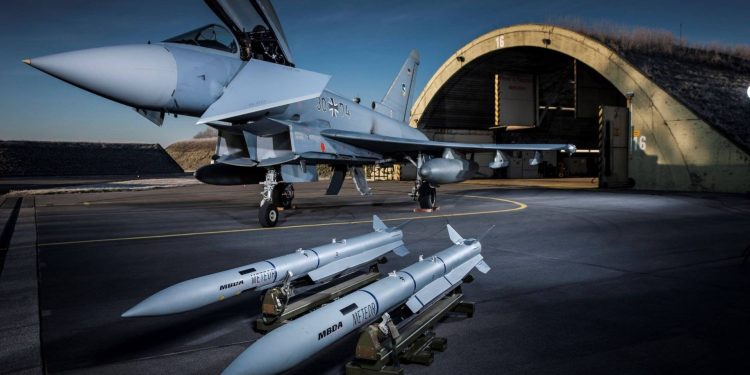The world’s biggest weapons manufacturers largely avoided the economic downturn caused by Covid-19 and recorded a growth in profits last year for the sixth year in a row, according to a report published on Monday.
Governments around the world have continued to buy arms during the pandemic and some also passed measures to help their big weapons firms, according to the Stockholm International Peace Research Institute (SIPRI).
Overall, the 100 top weapons firms saw their profits rise by 1.3 percent on 2019 to a record $531 billion, despite the global economy contracting by more than three percent.
“Military manufacturers were largely shielded by sustained government demand for military goods and services,” said SIPRI researcher Alexandra Marksteiner in the institute’s annual assessment of arms companies.
“In much of the world, military spending grew and some governments even accelerated payments to the arms industry in order to mitigate the impact of the Covid-19 crisis.”
The top five arms firms were all from the United States, Lockheed-Martin — which counts F-35 fighter jets and various types of missiles among its bestsellers — consolidating its first place with sales of $58.2 billion.
Britain’s BAE Systems, in sixth position, was the highest-placed European firm, just ahead of three Chinese groups.
Rise of China
“The rise of China as a major arms producer has been driven by its aim to become more self-reliant in weapons production and by the implementation of ambitious modernization programs,” the report said.
While China’s arms sales have expanded, they still lag US and British firms, accounting for a total of 13 percent of the top 100 arms sales in 2020.
Sales by the five Chinese firms in the top 100 totaled an estimated $66.8 billion in 2020, up 1.5 percent on the previous year.
“In recent years, Chinese arms companies have benefited from the country’s military modernization programs and focus on military-civil fusion,” SIPRI senior researcher Nan Tian said.
“They have become some of the most advanced military technology producers in the world.”
Of the top-producing countries, only France and Russia saw their firms’ sales decline last year.
The institute said the firms had benefited from the broad injection of cash into economies, as well as specific measures designed to help arms companies such as accelerated payments or order schedules.
And as military contracts usually span several years, firms were able to make gains before the health crisis took hold.
“However, despite these and other factors, global arms production was not fully immune to the impact of the pandemic,” the report said, pointing to France’s Thales which blamed a 5.8 percent fall in arms sales on lockdown disruptions.
The report highlighted that the rate of increase in profits had slowed substantially between 2019 and 2020, and noted that measures taken to halt the spread of the virus had disrupted supply chains in the weapons industry just as they had across the wider economy.










